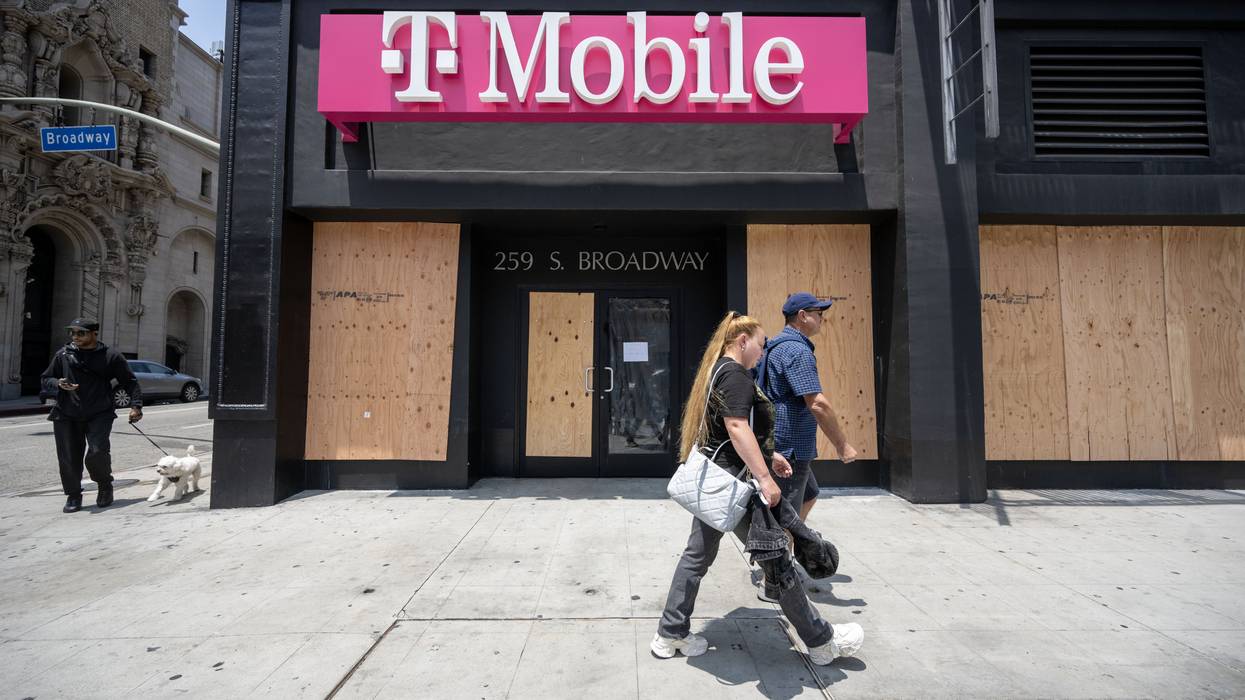"With the people of Gaza continually in the dark, documenting and sharing information about what is happening on the ground is increasingly challenging, if not outright impossible," added Mnejja, whose group is calling for a physical and digital cease-fire.
Paltel, a Palestinian internet service provider (ISP), said on social media last week: "We regret to announce that all telecom services in Gaza Strip have been lost due to the ongoing aggression. Gaza is blacked out again."
"Long hours of service interruption," the ISP
added Thursday. "How many loved ones have we lost? How much do we worry about our loved ones?"
Despite Israel's claims that its troops are targeting militants in the Hamas-governed enclave, Israeli forces have killed at least 24,620 Palestinians—mostly women and children—and wounded another 61,830,
according to officials in Gaza. Thousands more remain missing in the rubble that used to be homes, hospitals, mosques, schools, and other civilian infrastructure.
Sharing a new graph from the watchdog NetBlocks that shows network connectivity in Gaza throughout the war, Mohammed Khader, policy manager at the U.S. Campaign for Palestinian Rights, noted that the start of the current blackout coincided with International Court of Justice (ICJ) hearings for the South African-led case accusing Israel of genocide.
The section of South Africa's 84-page
application to the ICJ summarizing genocidal acts states that "Israel is deliberately imposing telecommunications blackouts on Gaza and restricting access by fact-finding bodies and the international media. At the same time, Palestinian journalists are being killed at a rate significantly higher than has occurred in any conflict in the past 100 years."
A Palestinian Journalists' Syndicate volunteer
said last week that the group has evidence that at least 96 of the 109 Gaza reporters whose deaths it documented "were deliberately and specifically targeted by surgical Israeli strikes against them."
After an Israeli airstrike killed Wael Abu Fannouna on Thursday, Gaza officials
announced that at least 119 members of the media have been killed since October 7. The U.S.-based Committee to Protect Journalists (CPJ) has identified 76 of them.
"A communications blackout is a news blackout," CPJ stressed in a late October statement about Gaza—as Anealla Safdar, Al Jazeera's Europe editor, recalled in response to the NetBlocks update on Thursday.
"This can lead to serious consequences with an independent, factual information vacuum that can be filled with deadly propaganda, dis- and misinformation," CPJ warned at the time, also highlighting that targeting journalists or media infrastructure constitutes possible war crimes.
"At this dark hour, we stand with journalists," the group added, "with those truth-seekers whose daily work keeps us informed with facts that shed light on the human condition and help to hold power to account."
In addition to limiting on-the-ground reporting on the war, the current blackout "left civilians unable to call for help and aid workers struggling to reach them as Israeli airstrikes rained down on the south," The New York Times reported Wednesday.
According to the newspaper:
Airstrikes and fighting between Israeli soldiers and Palestinian militants in Khan Younis have been so intense that repair crews have had trouble reaching the damaged sites, Paltel said. Last week, two of its workers, in the process of making repairs, were killed when a company car was fired upon, Paltel said, adding that it had coordinated the repairs with the Israeli authorities in advance. The Israeli military said the episode had been referred for investigation.
"Internet shutdowns are a matter of life and death in Gaza," declared Marwa Fatafta, Access Now's MENA policy and advocacy director.
"It is unconscionable to toy with connectivity amidst unprecedented violence and unfathomable human suffering," Fatafta said. "The international community must act now to end the war and internet shutdowns. The silence so far has been glaring."




